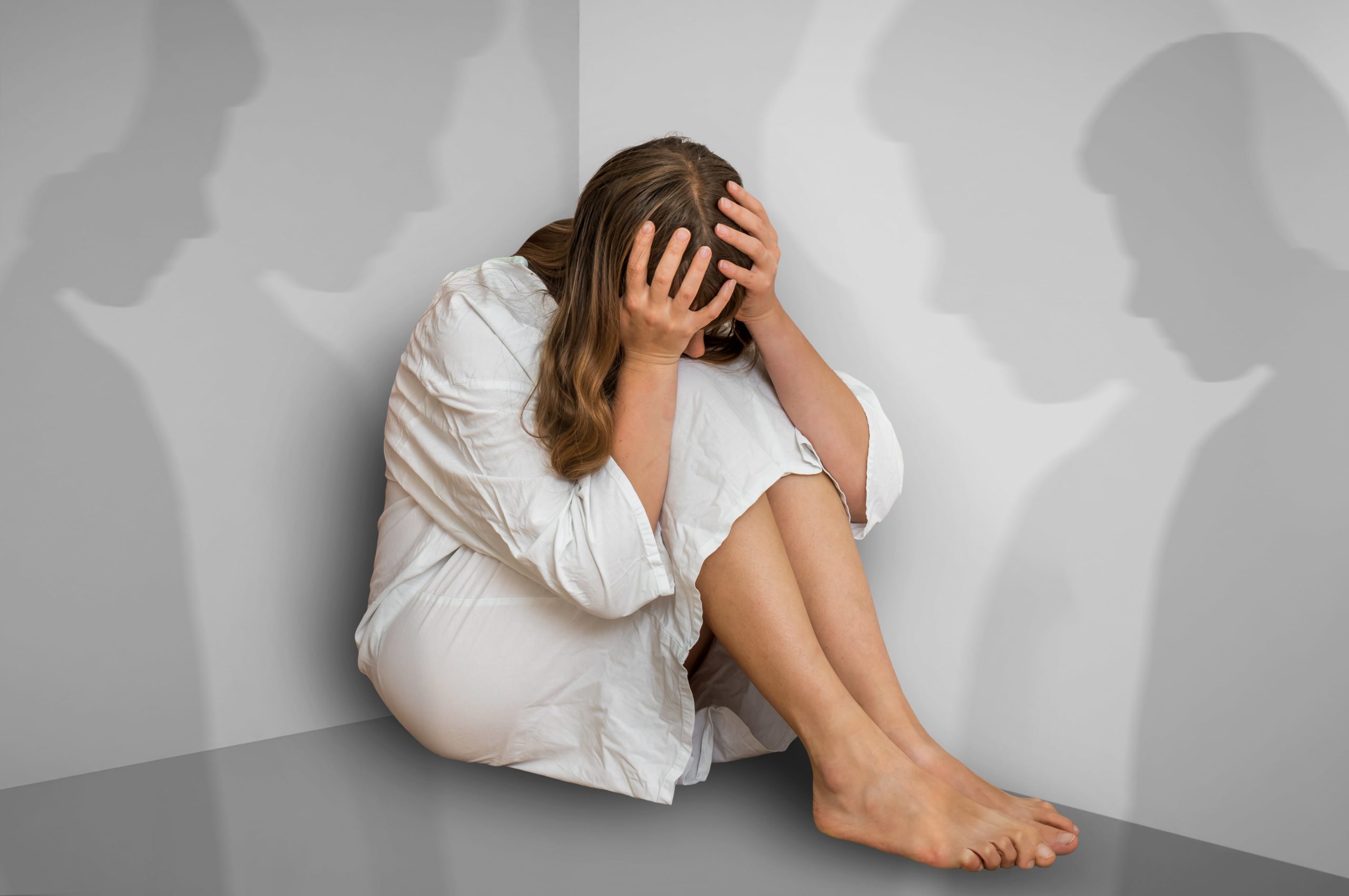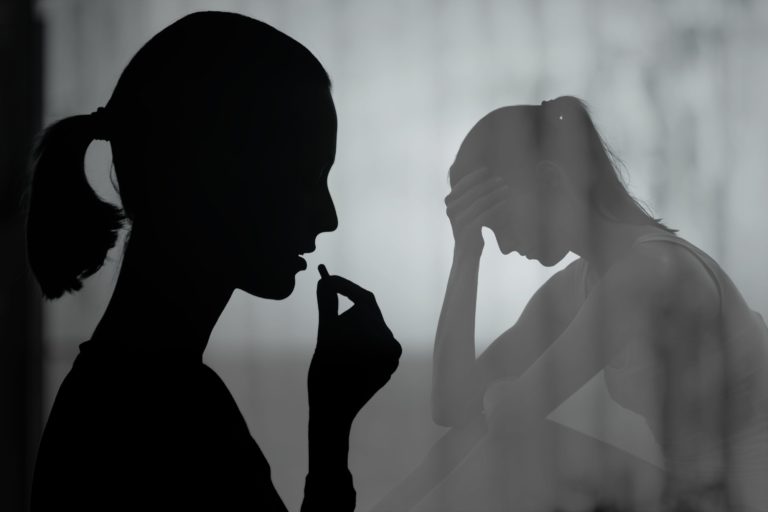Anxiety disorders can upend a person’s ability to live a full and satisfying life. Hallucinations can undermine how a person perceives the world around them and interacts with others. But what happens when someone experiences both of these challenges at the same time? Can anxiety cause hallucinations? And, if they can, what treatment options can help?
If you’re struggling with anxiety hallucinations, our anxiety treatment in Nashville can help.
What is Anxiety?
In general conversation, anxiety is often used as a synonym for slight fear or nervousness. When this word is used in a mental health capacity, it can refer to several conditions that are grouped under the umbrella term anxiety disorders.
The following are examples of anxiety disorders:
- Generalized anxiety disorder
- Separation anxiety disorder
- Social phobia
- Agoraphobia
- Specific phobia
- Selective mutism
- Panic disorder
Excessive fear or worry are characteristics of all anxiety disorders. These disorders are differentiated primarily by what type of event or experience causes the onset of symptoms. For example, a person who has social phobia may have a disproportionate reaction to the thought of speaking in front of a crowd or meeting new people, while a person who has separation anxiety disorder may experience considerable distress when they are not near a certain person.
What Are Hallucinations?
To answer the question, “Can anxiety cause hallucinations?” it is important to understand what, exactly, hallucinations are. Hallucinations occur when you perceive something that does not exist. Hallucinations have also been described as false sensory experiences or sensory experiences without an external stimulus. When you have a hallucination, you believe that what you are perceiving is real, but in truth the source of the hallucination is your own mind.
By the definitions in the previous paragraph, a dream is a type of hallucination. However, for the purpose of this page, we will be discussing hallucinations that may be associated with brain abnormalities, mental health disorders, or the abuse of certain substances. Since humans have five senses, there are five different types of hallucinations.
Auditory Hallucinations
Auditory hallucinations are the most common type of hallucination. People who experience auditory hallucinations hear music, voices, or other sounds. In some cases, a person may feel like the sound is coming from inside their own head. In other cases, an individual may believe they are hearing something from an external source.
Visual Hallucinations
Visual hallucinations can involve seeing colors, people, lights, or other things that aren’t actually there. Visual hallucinations are common effects of LSD and similar drugs (which is why the term “hallucinogens” is often used to describe this category of substances). Visual hallucinations can also be symptomatic of certain mental health disorders, such as schizophrenia.
Tactile Hallucinations
Tactile hallucinations involve physical sensations. These sensations are usually, but not always, unpleasant. For example, a person who has a tactile hallucination may feel like bugs are crawling over (or beneath) their skin. Tactile hallucinations can result from methamphetamine use. They may also be a withdrawal symptom among people who have engaged in heavy, long-term alcohol abuse.
Olfactory & Gustatory Hallucinations
These are the two least common types of hallucinations. Olfactory hallucinations involve the sense of smell, while gustatory hallucinations are related to the sense of taste. Potential causes of olfactory hallucinations include brain damage, certain medications, and seizures. Parkinson’s disease and epilepsy are two potential causes of gustatory hallucinations.
Can Anxiety Cause Hallucinations?
Hallucinations are not among the more common symptoms of anxiety disorders. However, several sources have noted that anxiety can cause hallucinations. A paper that was published in the January 2016 edition of the journal Consciousness and Cognition discussed the strong relationship between anxiety and verbal hallucinations. Verbal hallucinations are the subset of auditory hallucinations that includes hearing voices. The authors of this paper emphasized their belief that “anxiety is not merely a consequence of [verbal hallucinations]: it both triggers them and shapes their content.”
A 2018 study in the journal Schizophrenia Bulletin reported an association between anxiety and psychotic symptoms. Common psychotic symptoms include hallucinations, delusions, and disorganized thoughts.
This study, which involved more than 3000 adolescents and young adults, found that 27% of the subjects who had anxiety or depression experienced psychotic symptoms. Among subjects who didn’t have anxiety or depression, 14% had at least one psychotic symptom. The authors of the 2018 study reported that “affective dysregulation (anxiety and depression) and reality distortion are coexpressed across the range of subclinical and clinical expression.”
How Are Anxiety & Hallucinations Treated in Nashville, TN?
When discussing treatment for anxiety and hallucinations, it is important to understand a key difference between these two concerns: Anxiety disorders are mental health conditions, while hallucinations are symptoms.
Anxiety disorders are typically treated with a combination of medication and therapy. Certain prescription medications can ease some symptoms of anxiety, while therapy can help a person learn how to manage remaining symptoms, so they have minimal negative impact on their life.
The types of therapy that a person receives as part of their comprehensive anxiety treatment can depend on which type of anxiety disorder they have developed and how their life has been impacted by the symptoms they are experiencing.
People who have hallucinations are often treated with antipsychotic medications. Cognitive-behavioral therapy (CBT) and transcranial magnetic stimulation (TMS) may also be incorporated into treatment for hallucinations. To determine an optimal course of treatment for someone who has been having hallucinations, it is important for the treatment team to determine if they are the result of an anxiety disorder, another mental health concern, or a different cause.
Begin Treatment for Anxiety and Hallucinations in Nashville, TN
Arbor Wellness is a trusted source of comprehensive care for adults whose lives have been disrupted by anxiety disorders and/or hallucinations. Our treatment center in Nashville, Tennessee, provides customized inpatient and outpatient care in a safe and welcoming environment. Give us a call or visit our admissions page today to learn how we can help.











Pingback: Can anxiety cause auditory hallucinations? - Resto NYC